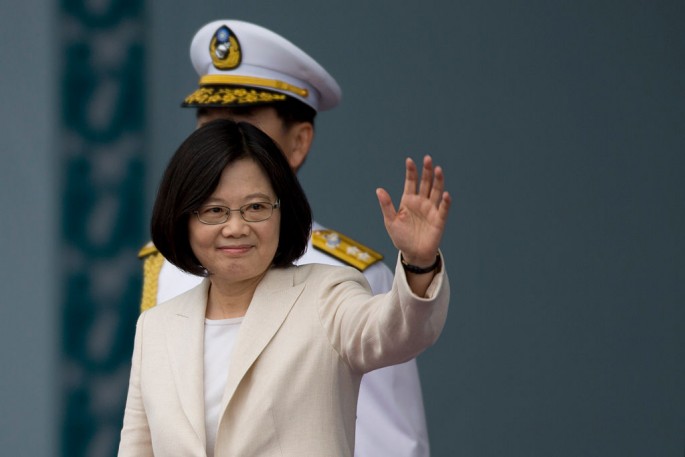Taiwan’s President Tsai Ing-wen is pushing away from China two weeks through her reign, which may cause conflict with the mainland, a report says.
According to Bloomberg News, Tsai is gradually clearing her position on the "one China" policy by indirect but significant moves that might "irk" Beijing.
Interestingly, the outlet's analysis of the island's new government comes a day after Breitbart reported a recent poll that indicates the Taiwanese people's wish to become independent from the People's Republic of China.
Small Things, Big Effect
On Friday's report, Bloomberg cited a couple of moves Tsai and her new government under the pro-independence Democratic Progressive Party made over her two weeks as the president of the country which might mean turbulence for "one China."
First, Tsai spent her first full day as the new leader of the island by creating a mechanism that would settle maritime disputes with Japan, a clear indication that she wanted warmer relations with the country.
Second, Taiwanese Premier Lin Chuan ordered that criminal charges against 126 protesters who rallied against a trade pact with the mainland in 2014 be dropped.
Third, Tsai used the term "ambassador" instead of "representative" when she confirmed the appointment of a new Taiwanese diplomat to the United States, which means she considers Taiwan as a country and not a province as Beijing repeatedly insisted.
Finally, the first female Taiwanese president is also seen to be looking beyond China to improve the island's economic growth based on her "New Go South" initiative.
"Tsai has made clear policy choices in her first few days in office, distinguishing Taiwan from China on nearly every front--political, economic, cultural and foreign relations," National Taiwan University political science professor Chang Ling-chen told Bloomberg.
Taiwan Polls
These small but significant moves by the Taiwanese president have not gone unnoticed by her subjects, according to a recent poll cited by Breitbart.
According to the outlet, more than half or 66.4 percent of the Taiwanese population who participated in the survey oppose unification with the mainland.
Only 18.5 percent are in favor of the "One China" policy, while the remaining 15.1 percent are noncommittal.
Furthermore, the poll found that Taiwan's younger generation, particularly those between 20 and 29 years old, are pro-independence as 72 percent of them said they supported independence.
According to Breitbart, these numbers are consistent with previous surveys, specifically one from 2005 which shows how more residents of Taiwan see themselves as "Taiwanese" and not "Chinese."



























